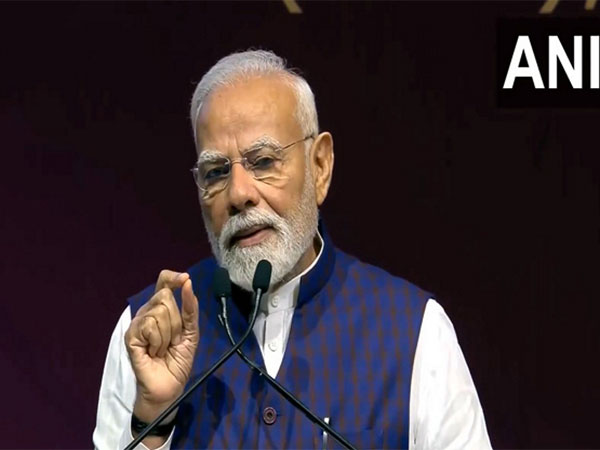PM Modi Inaugurates Semicon India 2025, Paving Path for $1 Trillion Chip Market
Referring to India’s latest GDP growth of 7.8% in the first quarter of 2025, Shri Modi underscored that India continues to outperform global expectations despite uncertainties in the global economy.

- Country:
- India
Prime Minister Shri Narendra Modi today inaugurated Semicon India – 2025 at Yashobhoomi Convention Centre, New Delhi, marking a historic milestone in India’s ambition to become a global semiconductor hub. The event brought together top CEOs of semiconductor giants, international delegates from over 40 countries, start-up leaders, entrepreneurs, and students from across India, signaling strong global confidence in India’s chip-making future.
India’s Global Position in Technology
Addressing the audience, the Prime Minister shared that he had just returned from his official visit to Japan and China, where he had the opportunity to visit the Tokyo Electron factory with Japanese Prime Minister H.E. Mr. Shigeru Ishiba. Welcoming the Tokyo Electron CEO and other dignitaries present at the summit, Shri Modi highlighted his lifelong passion for technology and its transformative role in shaping India’s development.
He emphasized that India’s youth and innovation, combined with global expertise, send a powerful message to the world: “The world trusts India, the world believes in India, and the world is ready to build the semiconductor future with India.”
India’s Economic Momentum
Referring to India’s latest GDP growth of 7.8% in the first quarter of 2025, Shri Modi underscored that India continues to outperform global expectations despite uncertainties in the global economy. He emphasized that India’s momentum is visible across all sectors—manufacturing, agriculture, services, and construction—accelerating the nation’s journey to becoming the third-largest economy in the world.
Drawing an analogy, the Prime Minister remarked: “Oil was black gold, but chips are digital diamonds.” He underlined that while oil dictated the 20th century, semiconductors will drive the 21st, with the global semiconductor market projected to exceed $1 trillion in the coming years.
Rapid Progress of the India Semiconductor Mission
Tracing the timeline of India’s semiconductor journey, Shri Modi recalled:
-
2021 – Launch of the Semicon India programme
-
2023 – Approval of India’s first semiconductor plant
-
2024 – Several new semiconductor fabs approved
-
2025 – Five additional projects cleared, bringing total to ten ongoing projects worth $18 billion (₹1.5 lakh crore)
He highlighted the swift progress, noting that CG Power’s pilot plant began operations on 28th August 2025, with Kaynes’ pilot plant also set to begin shortly, while Micron and Tata have already produced test chips. Commercial chip production, he assured, will begin this year.
“Our journey may have started late, but nothing can stop us now,” Shri Modi declared.
Infrastructure, Incentives, and Ease of Doing Business
Underscoring the importance of speed in semiconductors, the Prime Minister explained that the government is working on a “file to factory, wafer to work” approach. With the National Single Window System, all approvals from central and state governments can now be accessed on a single platform, drastically reducing paperwork.
India is also building plug-and-play semiconductor parks with ready access to land, energy, skilled workers, port and airport connectivity. Combined with Production-Linked Incentives (PLI) and Design Linked Grants, India now offers end-to-end semiconductor solutions.
“India is moving beyond backend operations towards becoming a full-stack semiconductor nation,” Shri Modi emphasized, adding that the smallest Indian-made chip will soon power the world’s biggest innovations.
Building a Comprehensive Semiconductor Ecosystem
The Prime Minister clarified that India’s mission goes beyond establishing a single fab. Instead, India is building a comprehensive semiconductor ecosystem—from chip design and fabrication to packaging, testing, and high-tech device manufacturing.
Design centers in Noida and Bengaluru are already developing cutting-edge chips containing billions of transistors, powering the immersive technologies of the future. Shri Modi noted that India is simultaneously addressing the challenge of securing critical minerals, with the National Critical Mineral Mission ensuring domestic availability of rare minerals needed for chip manufacturing.
Youth, Start-Ups, and MSMEs at the Core
Highlighting that India contributes 20% of global semiconductor design talent, Shri Modi urged start-ups and MSMEs to seize the opportunity. He said the Design Linked Incentive Scheme and Chips-to-Startup Programme have been tailored for them, and further restructuring will make these initiatives more effective.
He added that the newly launched National Research Fund will support indigenous R&D and intellectual property creation through global tie-ups. Several Indian states are also formulating dedicated semiconductor policies and building specialized infrastructure to attract investments.
Reform, Perform, Transform
Reaffirming India’s commitment to reforms, Shri Modi said, “India has reached this stage by following the mantra of Reform, Perform, and Transform.” He assured investors that India’s semiconductor policies are long-term commitments, not short-term signals.
“Design is ready. Mask is aligned. Now is the time for precision execution and delivery at scale. The day is not far when the world will say: Designed in India, Made in India, Trusted by the World,” the Prime Minister declared to applause.
The event witnessed the presence of key dignitaries including Union Ministers Shri Ashwini Vaishnaw and Shri Jitin Prasada, Chief Minister of Delhi Smt. Rekha Gupta, Chief Minister of Odisha Shri Mohan Charan Majhi, and global semiconductor leaders.
With over $18 billion worth of semiconductor projects already underway, rapidly developing infrastructure, and a strong pool of skilled talent, India’s semiconductor mission is poised to reshape global supply chains and make the nation a semiconductor powerhouse of the 21st century.
ALSO READ
Why Indian Startups Are Turning to HRTailor's Online HR Manager for Efficient HR Setup and Compliance
Strengthening Bonds: Australia and U.S. Collaborate on Critical Minerals
Forging New Alliances: Australia and the U.S. Eye Critical Minerals
Veterans Propel Europe's Defence Startups to New Heights
Cabinet approves Rs 1,500 cr incentive scheme to promote recycling of critical minerals: Official statement.










